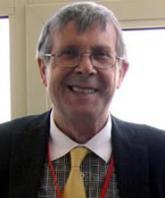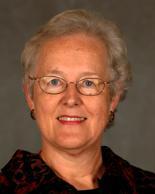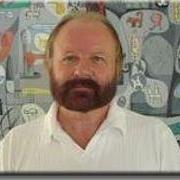Plenary Speakers
Skip to content Skip to main navigation
The 35th Second Language Research Forum (SLRF 2016)
'Focus on Form': Past and Present
(Plenary Speech I, September 23, 2016, 11:00AM-12:00PM)
 |
Dr. Rod Ellis University of Auckland and Shanghai International Studies University Website: http://www.arts.auckland.ac.nz/people/rell035 Email: r.ellis@auckland.ac.nz |
Abstract
| ‘Focus-on form’ (FonF) was a term first introduced by Michael Long to refer to an approach to teaching where learners’ attention is attracted to linguistic forms as they engage in the attempt to communicate. It contrasts with an approach that Long called ‘Focus-on-forms’ where specific linguistic forms are taught directly and explicitly. However, there is perhaps no construct in SLA that has proved so malleable and shifted in meaning so much. I will begin by considering how Long’s original definition of it has stretched over time and then offer my own definition of the construct, arguing that the term might best be applied to specific kinds of ‘activities’ or ‘procedures’ rather than to an ‘approach’. I will then go on to present a classification of these different types of focus on form activities/ procedures. I will also suggest that it is important to distinguish the psycholinguistic and discoursal dimensions of FonF. Based on this distinction, I will undertake a review of the research that has investigated different ways in which a focus on form can be realized and its effect on task-based performance and acquisition. In the final part of my paper I will consider criticisms that have been levelled against the construct. I will consider to what extent comparative studies of FonF and FonF can help address these criticisms and examine a number of such studies. Finally I will discuss what I see as the main problems of implementing FonF – namely, the resistance it arouses in instructional contexts where for cultural reasons FonFs has been the norm – and propose a solution. |
Biography
|
Rod Ellis is Distinguished Professor of Applied Language Studies in the University of Auckland, and also Cheung Kong Scholar Chair Professor at Shanghai International Studies University. His published works include numerous articles and books on second language acquisition and language teaching. His most recent book is Exploring Language Pedagogy through Second Language Acquisition Research (with Natsuko Shintani) published by Routledge. He has also recently been elected a Fellow of the Royal Society of New Zealand. |
Making Research on ISLA Relevant for Teacher Practices
(Plenary Speech II, September 23, 2016, 4:30-5:30PM)
 |
Dr. Roy Lyster McGill University Website: http://people.mcgill.ca/roy.lyster/ Email: roy.lyster@mcgill.ca |
Abstract
|
This talk will present ways of making research on ISLA more relevant for teachers through professional development initiatives. First, classroom research on corrective feedback will be synthesized in a way that explores the extent to which the findings to date can be made relevant for teachers in contexts of professional development. Second, classroom research on crosslingual pedagogy, which draws learners’ attention to L1-L2 connections, will be highlighted in order to then showcase professional development initiatives that support teachers to collaboratively engage in biliteracy instruction. Third, the challenges faced by teachers having to teach both language and content in CLIL and immersion contexts will be illustrated through classroom research. Again, professional development initiatives undertaken to support teachers in their endeavor to integrate content-based and form-focused instruction will be presented to illustrate not only the effectiveness of an integrated approach but also the pressing need for such support. |
Biography
|
Roy Lyster is Professor of Second Language Education at McGill University in Montreal. He was co-president then president of the Canadian Association of Applied Linguistics from 2004 to 2008 and serves on the Editorial Boards of Studies in Second Language Acquisition, Language Teaching Research, and the Journal of Immersion and Content-Based Education. His published works include several articles on content-based second language instruction and the effects of instructional interventions—such as teacher scaffolding and corrective feedback—designed to counterbalance form-focused and content-based approaches. He is author of two books: Learning and Teaching Languages Through Content published by Benjamins in 2007 and Vers une approche intégrée en immersion published by Éditions CEC in 2016. |
Reflections on Practicing, Researching, and Theorizing Language Studies - and Back:
The Potential of Curricular Teaching
(Plenary Speech III, September 24, 2016, 10:30-11:30AM)
 |
Dr. Heidi Byrnes Georgetown University Website: http://explore.georgetown.edu/people/byrnesh/ Email: byrnesh@georgetown.edu |
Abstract
|
As SLA has matured it faces noteworthy challenges: While it has accumulated considerable data-based research, many of its findings are inconclusive. Even more vexing, the highly theorized and proceduralized nature of conducting research can make their application in educational practice tenuous at best, irrelevant at worst. All the while, questions that educators have as they strive to create facilitative instructional environments are neither asked nor answered. From the research side, suggested remedies tend to focus on methodological improvements. By contrast, in this talk I will take a deliberately educative perspective that rests on the claim that instructed learning is fundamentally an educational process and therefore demands that key factors of that educational context be incorporated in a principled fashion right from the start, One way to do so is to adopt a curricular optic. I illustrate the need for and key consequences of such a reorientation by turning to collegiate FL programs in the United States. They are marked by (a) bifurcated programs that separate ‘language courses’ from ‘content courses’, which (b) leads to the absence of coherent four-year curricular proposals, (c) thereby creating extraordinary difficulties both for delivering effective language education toward advanced ability levels and for enabling useable and useful research on instructed L2 development. I will argue that these educative-cum-research needs can only be met by adopting a meaning-oriented functional theory of language that conceptualizes and analyzes the social-semiotic quality of language through well-specified linguistic forms at all levels of the system and at all levels of proficiency. I will describe the potential of moving toward a curricular optic by laying out theoretical, research-driven, and educational arguments and providing broad principles for curricular thinking that simultaneously acknowledges the dynamic, variable, indeed at times highly idiosyncratic nature of language learning, even in instructed settings. |
Biography
|
Heidi Byrnes is George M. Roth Distinguished Professor of German Emerita at Georgetown University. Her research focuses on adult L2 literacy acquisition, particularly at the advanced level. She has edited and coedited books and special journal issues on the development of advanced literacy and the link between languaging and thinking, particularly in writing. Her most recent book-length publication is a co-edited volume, with Rosa Manchón, Task-based language learning: Insights from and for L2 writing. She is a past president of AAAL and is the recipient of numerous professional association awards, including the Distinguished Scholarship and Service Award of AAAL. She currently serves as editor-in-chief of the Modern Language Journal. |
ISLA: Methodological Issues and Some Major Research Questions
(Plenary Speech IV, September 24, 2016, 4:50-5:50PM)
 |
Dr. Michael Long University of Maryland Website: https://sllc.umd.edu/sla/mlong Email: mlong5@umd.edu |
Abstract
|
The quantity and quality of research on ISLA have risen steadily over the past two decades, for reasons both external and internal to the field. Externally, most major geopolitical forces have linguistic consequences, resulting in wider recognition of the importance of effective language instruction designed for specific populations. Internally, advances have been facilitated by several developments: renewed attention to instruction, language and acquisition, the ‘I’, ‘L’ and ‘A’ of ISLA; publication of detailed state-of-the-science surveys, both narrative accounts and statistical meta-analyses; deployment of new technology, e.g., eye-tracking; creation and validation of new measures, e.g., Hi-LAB; establishment of the field’s first collaborative research network (CRN) and of a free, publicly accessible digital repository of data-collection instruments, materials and stimuli (IRIS); a growing number of process-product studies, including ATI studies, that employ both linguistically focused and communicative assessment of outcomes; improvements in the ways studies are conducted, replicated and reported; and increased journal and conference space for the dissemination of findings. In part 1 of this presentation, I will focus on a number of conceptual and methodological advances in ISLA research, while noting some remaining limitations and obstacles to progress. In part 2, I will briefly discuss a set of major research issues in ISLA, noting exemplary studies where available. Several involve questions about what can best be achieved, or achieved at all, through incidental and/or intentional language learning. They are questions that have permeated the literature on language teaching methodology for many years now in the form of disagreements over the use, on the one hand, of primarily code-focused instructional approaches, e.g., synthetic linguistic syllabuses and PPP, and on the other, of primarily meaning-focused approaches, e.g., analytic task syllabuses and CLT. |
Biography
|
Michael H. Long is Professor of SLA at the University of Maryland, where he teaches courses in the Advanced Graduate Certificate, M.A. and Ph.D. in SLA programs. Mike serves or has served on the Editorial Boards of Studies in Second Language Acquisition, TESOL Quarterly, Language Teaching Research, JACET Bulletin, Porta Linguarium, Estudios de Linguistica Aplicada, Revista Nebrija de Linguistica Aplicada a la Ensenanza de las Lenguas, Linguistic Approaches to Bilingualism, and Brill Research Perspectives in Multilingualism and Second Language Acquisition, and was co-editor of the Cambridge Applied Linguistics Series for its first 20 years. He is the author of over 100 journal articles and book chapters. Recent publications include The Handbook of Second Language Acquisition (Blackwell, 2003), Second Language Needs Analysis (CUP, 2005), Problems in SLA (Erlbaum, 2007), The Handbook of Language Teaching (Wiley-Blackwell, 2009), Sensitive Periods, Language Aptitude, and Ultimate L2 Attainment (John Benjamins, 2013), and Second Language Acquisition and Task-Based Language Teaching (Wiley-Blackwell, 2015). In 2009, he was awarded a doctorate honoris causa by Stockholm University for his contributions to the field of SLA. |
